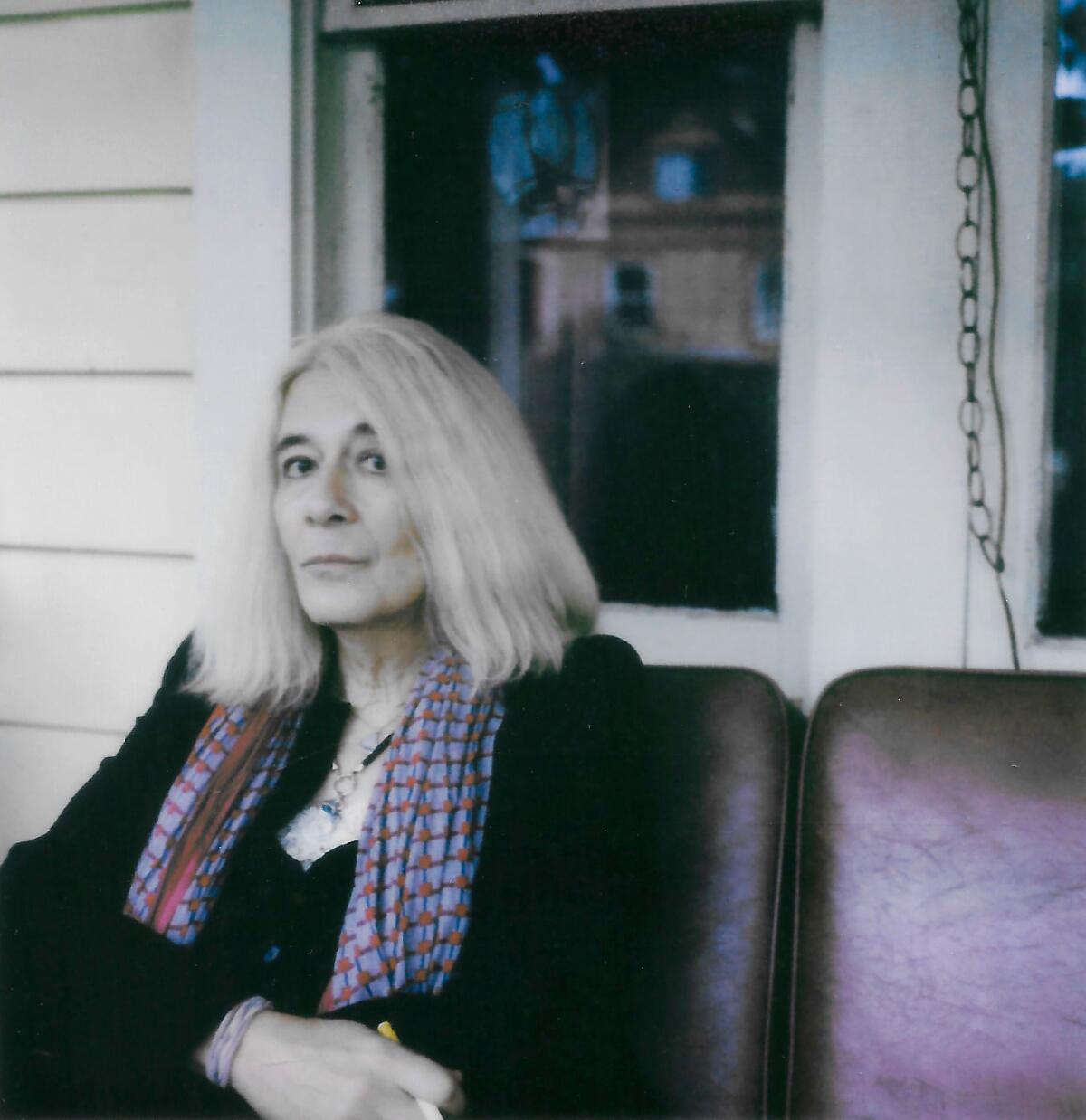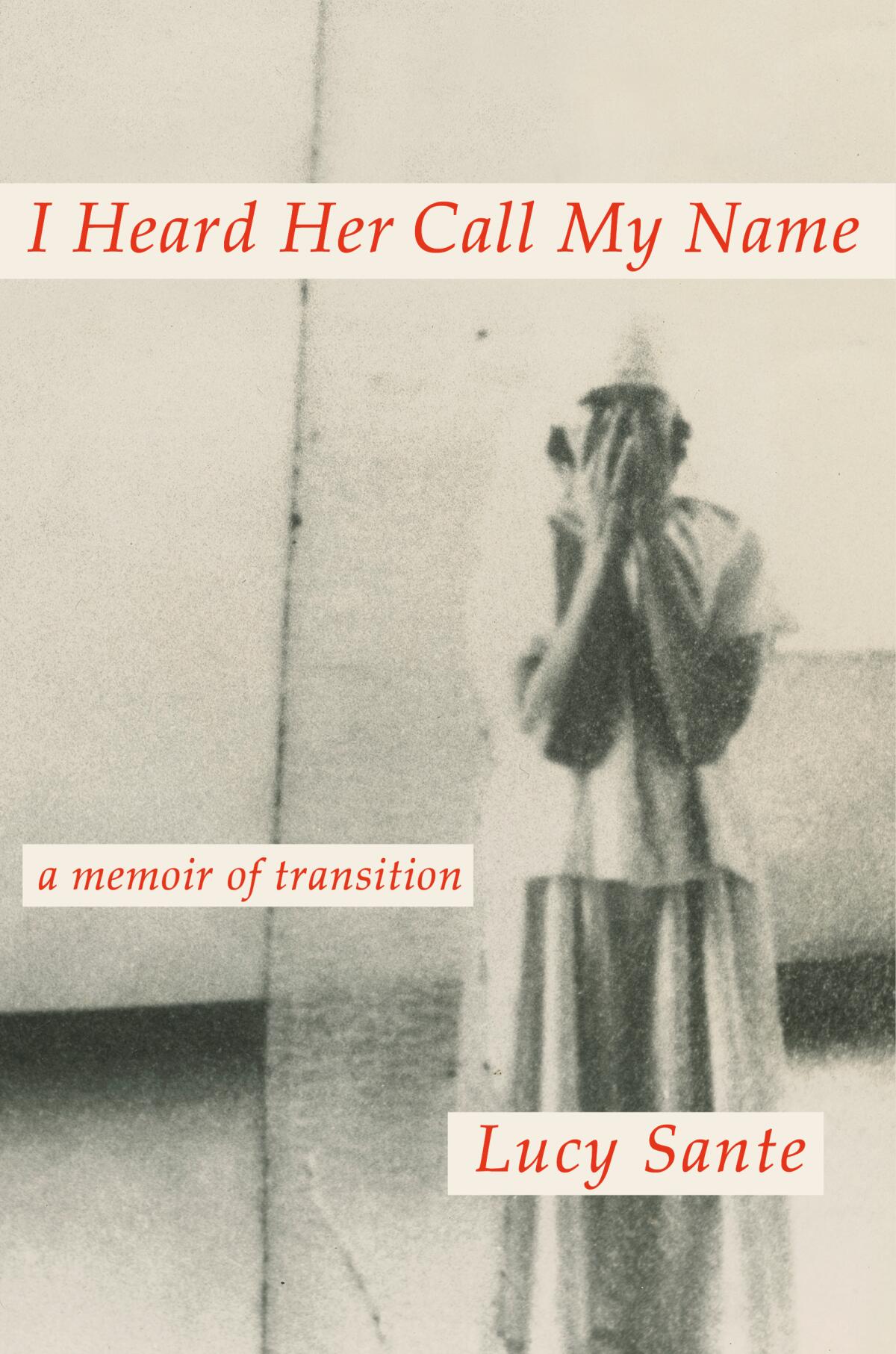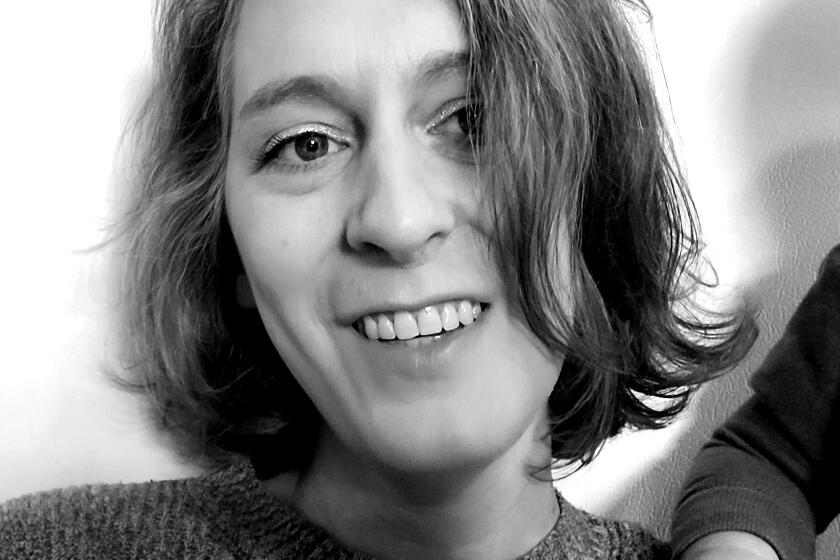Lucy Sante transitioned at 66. She’s finally been made whole

- Share via
Book Review
I Heard Her Call My Name
By Lucy Sante
Penguin Press: 240 pages, $27
If you buy books linked on our site, The Times may earn a commission from Bookshop.org, whose fees support independent bookstores.
For the 66 years prior to her decision to transition from male to female, Lucy Sante existed in a “prison of denial,” alternating between vague restiveness and profound discontent. What was at the root of it? Nearly four decades of therapy hadn’t produced an answer. But as she chronicles in an arresting memoir, “I Heard Her Call My Name,” “transitioning got rid of my neuroses and left me with, in Freud’s phrase, ordinary human unhappiness.”
Throughout Sante’s life, there had been glimmers of a desire to become a woman, but she’d never probed whether there might be a deeper significance to these urges even when they were consuming her. She recalls at age 11 furtively trying on her mother’s underwear and dress, then widening her eyes and softening her mouth, as she thought a girl might. She fantasized about playing a female role in a class play or becoming a protégé of a wealthy socialite who would outfit her like a doll. Those reveries persisted throughout adolescence and into adulthood; but when they bubbled to the surface, Sante pushed them down, focusing on manhood, marrying twice, “attempting to shove any lingering gender business deep in the crawl space under the stairs, where no one including me would ever see it again.”
Then in 2020 Sante tentatively tried out a gender-swapping feature of FaceApp to conjure a sense of what she might look like as a woman. “She was me,” Sante writes. “When I saw her I felt something liquefy in the core of my body … I had at last met my reckoning.”

Soon she was “feeding every portrait and snapshot and ID-card picture I possessed of myself into the magic gender portal,” including images of herself as a teenager. “That could have been me,” she remembers thinking. “Fifty years under water, and I’d never get them back.” She eagerly shares news that she is transitioning and explains her “origin story” with her close circle of friends, among them her longtime partner, Mimi. Most were supportive, though Mimi concludes this would mean the end of their romantic relationship. But “the dam had burst. … Now that I have opened Pandora’s box,” Sante writes, “I cannot close it again.”
“I Heard Her Call My Name” is a memoir without a conventional beginning, middle and end. Sante, who studied at a Jesuit all-boys school in Manhattan before being “sent down,” learned “how to put myself on trial and serve simultaneously as prosecutor, defense attorney, judge, jury, bailiff, and an array of witnesses pro and con.” She’s relentless in her self-interrogation. No period of her life is exempt from her poking and prodding; there are frequent shifts from present-day musings to childhood episodes that might unlock an answer to Sante’s perpetual question: Who am I? The author’s approach is circuitous, and there are never definitive answers. Had she been faking it as a man? Was she too old to be embarking on this journey? Would she be seen as “pathetic” in a dress and wig? Or, most pressing: “How can my ‘egg’ have ‘cracked’ 60-odd years after I knew?”
Imogen Binnie’s ‘Nevada,’ first published in 2013, follows two people at different points of a transgender journey, each trying to live in the present.
There is a brief break in Sante’s ambivalence as she experiences the “pink cloud” that accompanies various phases of her transition: immersing herself in trans literature and art; experimenting with makeup and hair; shopping till she drops. She finds elation and liberation in letting go of her past self: “It was a process of removal” during which she “might now and then feel freakish,” but she no longer had “a speck of self-doubt.” She enjoys “watching her maleness dry up.”
At times accompanying Sante on the many U-turns and dead ends she leads the reader into can be exhausting: Just as you think she’s finding resolution, there is another caveat. Yet it’s impossible not to be moved and fascinated by Sante’s exhilarating if painful journey. She worries that the literary reputation she’s built as Luc Sante, author of eight previous books, Bard College professor and longtime contributor to such prestigious publications as the New York Review of Books, will be eradicated by her identity change. She agonizes over the loss of her relationship with Mimi, perhaps the love of her life. She worries she will be viewed merely as a man in drag, when what she wants is “to be a woman, not a satire.”
The final pages of “I Heard Her Call My Name” find Sante pondering the plight of trans people in the world, and amazed that she herself is comfortably among them. “I am the person I feared most in my life,” she observes. “I lay in pieces for so long, but now I have, as the Mafia guys say, been made whole.”
Leigh Haber is a writer, editor and publishing strategist. She was director of Oprah’s Book Club and and books editor for O, the Oprah Magazine.
More to Read
A cure for the common opinion
Get thought-provoking perspectives with our weekly newsletter.
You may occasionally receive promotional content from the Los Angeles Times.











